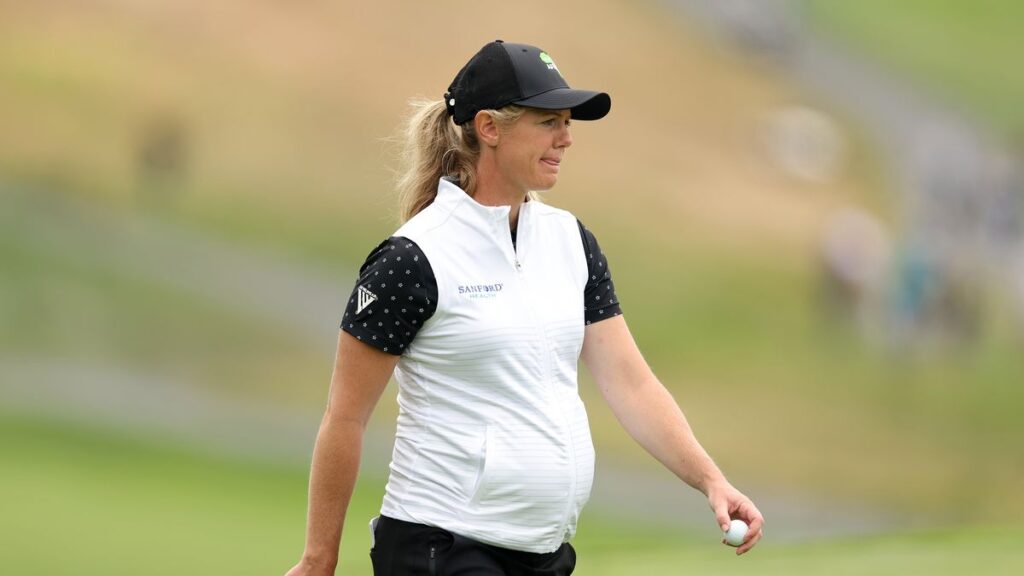In April 2024, Amy Olson, a former LPGA Tour professional, announced her retirement at the age of 31 as she was expecting her first child. Several other female pros, including Lexi Thompson, Mariajo Uribe, and Marina Alex, also retired around the same time, many of them in their early 30s. This trend of early retirement among female golfers is not common among male players, highlighting the unique challenges faced by women in the sport. In an interview with Golf Monthly, Olson discussed the pressures and factors that contribute to many female pros ending their careers shortly after turning 30.
For female golfers, the desire to start a family often plays a significant role in their decision to retire from professional golf at a young age. The pressure to balance personal aspirations such as marriage and children with the demands of a competitive pro career can create a sense of urgency and a ticking clock for many female athletes. The constant travel involved in professional golf can also take a toll on players, leading to burnout and a desire for more stability and time at home. Olson emphasized the importance of relational success and fulfillment in addition to professional success for many women on tour.
While not every female golfer chooses to prioritize starting a family, the expectations and challenges faced by those who do can impact their decision to retire. The lack of financial stability and support for families on the LPGA Tour compared to the PGA Tour can also contribute to burnout and early retirement among female pros. Olson highlighted the progress made in raising prize money on the LPGA Tour but noted that more support is needed to create a better quality of life for players and their families. The ability to have maternity leave and support for childcare while on tour is crucial for female golfers who want to balance motherhood with a professional career.
The decision to retire from professional golf in order to focus on motherhood is a personal one for many female athletes, with some choosing to continue playing while raising children. Olson pointed out the challenges faced by women who try to balance motherhood with a demanding athletic career, noting that she prioritized being the best mother she could be over continuing to play competitively. The lack of support and resources for female golfers compared to their male counterparts can make it difficult for women to juggle both roles effectively.
The gender policy change in the LPGA Tour, particularly regarding transgender players, has sparked debate and frustration among some former players like Olson. She expressed concerns about the impact of the policy change on the legacy of the 13 LPGA Tour founders and the integrity of women’s golf. The evolving landscape of professional golf, with changing demographics and policies, highlights the ongoing challenges faced by female athletes in a traditionally male-dominated sport.
In conclusion, the decision to retire from professional golf at a young age for many female players is influenced by a variety of factors, including the desire to start a family, the demands of travel and competition, and the lack of support compared to male players. The unique challenges faced by women in the sport highlight the need for continued progress and support for female athletes to create a more inclusive and equitable environment. Players like Amy Olson and others who have chosen to prioritize family and personal fulfillment over their careers serve as examples of the complex decisions and sacrifices made by women in professional golf.
